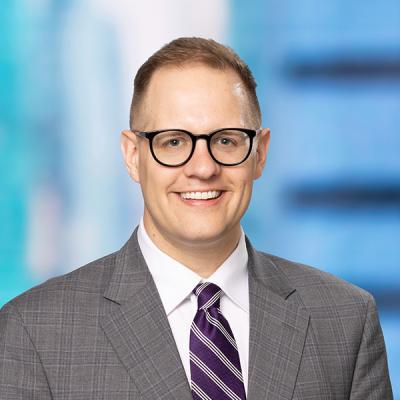Chicago Employers Must Now Provide Sick Leave and PTO to Employees
NOTE: This past was updated on December 21, 2023 in light of December 2023 amendments to the ordinance from the Chicago City Council.
The City of Chicago recently enacted a new Paid Leave and Paid Sick and Safe Leave ordinance. Though initially slated to go into effect December 31, 2023, on December 13, 2023, the Chicago City Council voted to amend the ordinance to, among other things, delay implementation of the new leave framework until July 1, 2024. The ordinance and subsequent amendment are notable because they go well beyond the recently passed Illinois Paid Leave for All Workers Act (discussed here), with Chicago now mandating that employers provide Chicago employees: (1) at least 5 days (40 hours) of paid sick/safe leave per year; and (2) at least 5 days (40 hours) of regular paid time off (PTO) per year. Unlike the rest of Illinois, which will be subject to the separate Illinois law, effective on January 1, 2024, Chicago’s existing paid leave laws will remain in effect until July 2024.
This new scheme makes Chicago’s mandate one of the – if not the – most expansive PTO requirements in the country. We highlight some of the key aspects of the new ordinance for Chicago employers below:
- Employee Coverage: Though the original ordinance leave requirements applied very broadly to any employee who “in any particular two-week period, performs at least two hours of work . . . while physically present within the geographic boundaries of [Chicago],” the amended ordinance now defines a “covered employee” as one who works at least 80 hours within a 120-day period. This change was made largely due to employer concerns about being subject to the law when non-Chicago employees visited Chicago for isolated purposes, and the change aligns with the current definition of a “covered employee” under the pre-existing Chicago sick leave framework. Significantly, the amendment also states that once an employee reaches the new coverage threshold, the employee will remain a covered employee for the rest of their tenure with the employer.
- Accrual or Frontloading: For employers utilizing an accrual system, starting July 1, 2024, employees will begin accruing both PTO and sick/safe leave time at one hour per 35 hours worked, and employees may cap accruals under each type of leave at 40 hours. Employee accruals (and caps) are measured across 12-month periods (which begin when the employee starts accruing time). While employers can utilize a 40 hour cap for each leave type, the ordinance does not allow for a “use” restriction (i.e., if an employee has carried over additional time beyond 40 hours, as discussed below, the employee would be able to use as much time as they have accrued in a single 12-month period).
Employers may also utilize a frontloading system whereby the employer frontloads at least 40 hours of PTO and 40 hours of paid sick/safe leave at the beginning of the 12-month period. Employers using a frontloading system do not have to permit carryover of PTO into the New Year, but they must permit carryover of unused paid sick/safe leave.
- Use Eligibility: Under the ordinance, employees may use PTO for any purposes of the employee’s choosing and may use paid sick/safe leave for the various sick/safe leave purposes enumerated under the law (including when the employee, or the employee’s family member, is ill, injured, or receiving professional care; or when the employee needs time for domestic violence-related issues). Eligible employees may start using their accrued sick/safe leave no later than 30 days after commencing employment, and employees may start using accrued PTO no later than 90 days after commencing employment.
- Employee Notice, Preapproval, and Documentation: Chicago employers may still adopt reasonable policies requiring employees to give prior notice for use of both PTO and the foreseeable need for paid sick/safe leave (with such notice requirements not to exceed 7 days), and employers may also reasonably require preapproval for the use of PTO. While employers may not require any documentation related to use of general PTO, employers can require various certifications that the employee has used paid sick/safe leave for a permissible purpose after the employee is absent for more than 3 consecutive workdays.
- Carryover: Importantly, employers using an accrual system must allow employees to carry over up to 16 hours (2 days) of PTO each year and up to 80 hours (10 days) of paid sick/safe leave each year. As mentioned above, employers using a frontloading system are not required to allow carryover of PTO, but must allow carryover of up to 80 hours (10 days) of paid sick/safe leave each year (though employers can limit future paid sick/safe leave accruals based on the 40 hour annual cap system detailed above).
- Payout at Termination: Most large employers must pay out accrued but unused PTO upon termination or when an employee leaves Chicago, though there is still no requirement to pay out accrued but unused sick/safe leave upon termination. “Small” and “medium” sized employers (which the ordinance defines as employers with 50 or fewer and 51-100 employees respectively) are subject to different payout rules – small employers have no payout obligation, and, under the recent amendments, medium-sized employers must pay out only 16 hours (2 days) of PTO until July 1, 2025, after which they will be required to payout all accrued but unused PTO.
- Unlimited PTO Policies: In a twist, Chicago has addressed the application of these rules to employers with “unlimited” PTO policies. Chicago will now require employers with “unlimited” PTO plans to pay out at termination up to 40 hours of PTO, less any PTO the employee has actually used over the course of the past 12 months. For instance, if an employer with an unlimited PTO plan terminates an employee who has only used 3 PTO days over the course of the prior 12 months, the employer would be required to pay out the equivalent of 2 days of PTO at separation. But if the employee has used 5 or more days of PTO during the prior 12 months, no payout will be required. Employers with “unlimited” PTO policies should therefore be careful to track the actual use of PTO by employees as such tracking will become essential in a termination setting or where the employee leaves Chicago (and will otherwise be required by recordkeeping obligations, as noted below).
- Notice Obligations and Recordkeeping: Employers will have several notice requirements under the ordinance, including that employers must:
- post and distribute a notice of employee rights (which will be provided by the city) upon the ordinance’s enactment, contemporaneously with an employee’s first paycheck, and annually thereafter between July 1st-31st;
- have a written policy explaining PTO and paid sick/safe leave entitlements and rules, with the amended ordinance adding that the written policy be provided to the covered employee in their primary language;
- share the written policy with employees at the time of hire and prior to making policy changes; and
- provide employees with leave accrual and usage information each pay period.
- post and distribute a notice of employee rights (which will be provided by the city) upon the ordinance’s enactment, contemporaneously with an employee’s first paycheck, and annually thereafter between July 1st-31st;
Chicago employers must also keep accurate records of each employee’s name, address, hours worked, pay rate, wage agreement, PTO and sick/safe leave hours provided, dates when PTO and sick/safe leave hours were used, and any other compliance records for at least 5 years. If an employer does not maintain records regarding this information, there will be a rebuttable presumption of a violation. Employers must also provide these records to an employee upon their request.
- Collective Bargaining Agreements: Where employees are subject to a collective bargaining agreement that provides more favorable terms than the ordinance, the collective bargaining agreement controls. While the ordinance and its amendments will not impact a sick leave or PTO policy contained in a valid collective bargaining agreement in effect on July 1, 2024, any subsequent collective bargaining agreements entered into must explicitly and unambiguously waive the ordinance requirements.
- Private Cause of Action: The amended ordinance delays the date for which an employee can bring a claim for paid leave violations against their employer until July 1, 2025. Then, between July 1, 2025 and July 1, 2026, the amended ordinance creates a interim cure period in which an employee seeking to bring a claim can only bring such a claim after (i) an alleged violation occurs; and (ii) the payday for the next regular payroll period or 16 days after the alleged violation occurrence passes, whichever period is shorter. This essentially allows an employer 16 days to fix any violations during the second year of the ordinance.
- Interplay with Illinois Law: The new Chicago requirements will replace the pre-existing paid sick and safe leave requirements in the city. Chicago employers should also be aware of the interplay between the new Chicago requirements and any applicable Illinois state law. Before Illinois’ enactment of its Leave for Any Purpose Law (which becomes effective January 1, 2024), the state did not have a paid sick leave or general paid time off law. But the Illinois Leave for Any Purpose Law exempts from coverage any employer located in a municipality or county where the employer is required to provide municipal or county paid leave time – accordingly, Chicago employers will not be subject to the general Illinois law and will not have additional PTO or paid sick/safe leave compliance obligations under the alternate Illinois law, even in the interim period before the Chicago law goes into effect in July 2024.
Mintz’s Employment Practice is ready, willing, and able to review employers’ current PTO and sick/safe leave policies to ensure Chicago compliance going forward.
Authors
Corbin Carter
Associate
Michael S. Arnold
Member / Chair, Employment Practice




